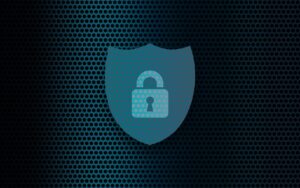Cybersecurity Awareness: Strengthening Your Team’s Defense with Essential Cyber Hygiene

Cybersecurity can seem like an insurmountable task for everyday people. But it’s not only a job for the IT team. Everyone can play a part in keeping their organization’s data safe. Not to mention their own data.
There are as many ways to safeguard data as there are data security companies. Following the basics can make a big difference in how secure your network remains.
What Is Cybersecurity Awareness Month?
Cybersecurity Awareness Month (CAM) is an annual initiative held every October promoting cybersecurity awareness and education. It aims to empower individuals and organizations by giving them knowledge and resources to strengthen their defenses against cyber threats.
CAM started as a U.S. initiative, National Cybersecurity Awareness Month. Then, it quickly spread around the globe. It’s led by two agencies:
- National Cyber Security Alliance (NCSA)
- Cybersecurity and Infrastructure Security Agency (CISA)
This collaborative effort involves various stakeholders including government agencies, industry leaders, and cybersecurity experts. The goal is to raise awareness about cyber risks and best practices.
This Year’s Theme
This was CAM’s 20th year. To celebrate, the theme revolved around looking at how far cybersecurity has come and where it’s going. This year, CAM focuses on four key best practices of cybersecurity.
These are:
- Enabling multi-factor authentication
- Using strong passwords and a password manager
- Updating software
- Recognizing and reporting phishing
Let’s take a closer look at these four best practices of good cyber hygiene.
Essential Cyber Hygiene: 4 Keys to a Strong Defense
Central to Cybersecurity Awareness Month is the promotion of essential cyber hygiene practices. We follow good hygiene to maintain physical health, such as brushing our teeth every day.
Cybersecurity also requires ongoing good hygiene practices to secure the online environment. These practices form the foundation of a strong cybersecurity defense to protect both individuals and organizations.
Enabling Multi-Factor Authentication (MFA)
Implementing Multi-Factor Authentication (MFA) adds a vital layer of security to all logins. In most cases, a hacker can’t breach an account protected by MFA even if the cyber crook has the password.
According to Microsoft, MFA can block 99.9% of attempted account compromise attacks. With that strong track record, everyone really should be using it on every login they have.
Strong Passwords & a Password Manager
Passwords remain a critical aspect of securing online accounts. Despite the increased use of biometrics, passwords still rule. Encourage your team members to use strong, unique passwords for each account. Avoid easily guessable information like birthdays or names.
Companies help by setting strong password enforcement rules that require a strong password before it’s accepted in a system. For example, you may set up a policy that requires a password to have:
- At least 12 characters
- At least 1 upper case letter
- At least 1 lower case letter
- At least 1 number
- At least 1 symbol
Updating Software
Outdated software creates vulnerabilities that cybercriminals can exploit. Regularly update operating systems, applications, and firmware to ensure the latest security patches are in place.
Automating updates offers a good way to ensure they’re done promptly. Companies can use endpoint device managers to handle updates across all employee devices. Managers like Intune simplify the process and enhance endpoint security.
Recognizing and Reporting Phishing
Phishing attacks are a common vector for cyber threats. Train your team to identify phishing emails, suspicious links, and unsolicited attachments. Encourage them to verify the sender’s email address. As well as never provide sensitive information unless certain of the recipient’s authenticity.
It’s also important to educate employees about phishing beyond email. Phishing via text messages has been increasing significantly. Some criminals phish via direct messages on social media platforms.
Another important aspect of phishing awareness is to report phishing. If it’s reported, then other employees know to avoid that phishing trap. The organization’s IT team also needs to know so they can take action to mitigate the threat. Be sure to let employees know how they can report a phishing email when they suspect one.
Why Is This Published By A Business Phone Company?
Here at NoContractVoIP, we believe that your success creates our success. And, since we specialize in business communication, we work to help you communicate better while staying safe. We create the cutting edge communication systems that modern companies need. And we geek out on tech stuff, so we study it for you.
To talk to a business phone system specialist and never worry about any of this again, call 866-550-0005 or contact us today.
To get the latest helpful content delivered to your inbox every month, subscribe to our newsletter here.
